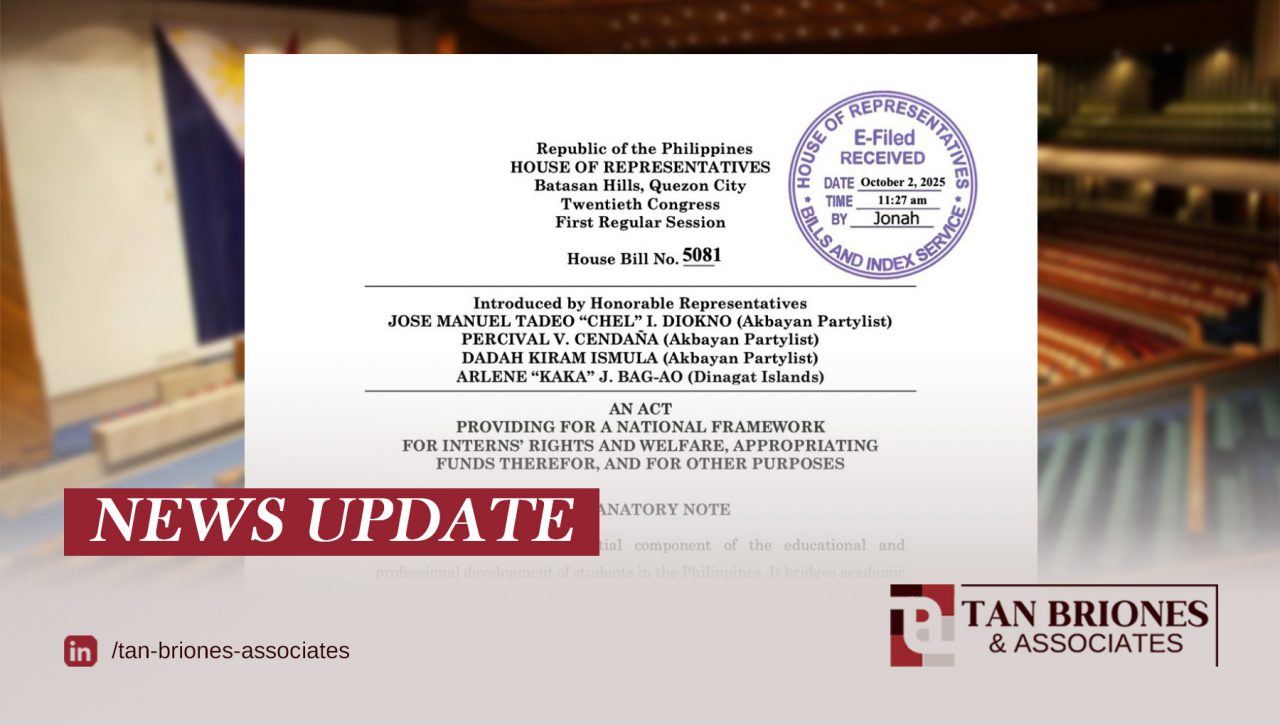
A proposed law seeks to guarantee fair pay and stronger protections for student interns by ending unpaid internships and addressing workplace exploitation.
Under House Bill No. 5081 or the proposed Interns’ Rights and Welfare Act, interns in government agencies would receive a non-taxable stipend equivalent to 75 percent of Salary Grade 1, while those in private institutions would be entitled to an allowance equivalent to 75 percent of the minimum wage, prorated based on actual hours worked.
Authored by Jose Manuel Diokno of Akbayan Partylist, with co-authors Perci Cendaña, Dadah Kiram Ismula, and Arlene Bag-ao, the measure seeks to establish a national framework that guarantees just compensation, humane working conditions, and protection from exploitation for students undergoing internships.
“For these programs to truly serve their purpose, we must also protect the rights and welfare of our interns, and ensure that they are treated with respect and dignity,” Diokno said.
The proposed law mandates a notarized internship contract between schools and employers detailing the interns’ rights and obligations, duration, schedule, and compensation. Internship periods shall not exceed 300 hours or six months and should follow regular office hours.
Interns would be entitled to rest periods, and work should be limited to weekdays. Should they be required to work on weekends or holidays, they must receive corresponding overtime, premium, or holiday pay in accordance with the Labor Code.
Schools and employers will also be prohibited from imposing monetary penalties for absences. Instead, interns may only be required to make up for missed hours.
The bill also guarantees “humane working conditions,” including access to health services, reasonable work hours, personal and medical leave, accident insurance, and protection from discrimination, harassment, and abuse.
In the absence of a law requiring intern compensation, only optional incentives such as meals or transportation allowances are provided under the Commission on Higher Education (CHED) Memorandum Order No. 104, s. 2017, which governs student internships and mandates contracts and basic protections.
Meanwhile, internship fees charged by schools are regulated under CHED Memorandum Order No. 03, s. 2012, which requires consultation and transparency.
Furthermore, the bill also seeks to establish a multi-agency task force composed of CHED, the Department of Labor and Employment, the Civil Service Commission, and student representatives to monitor compliance, handle complaints, and impose sanctions on violators.
Follow Tan Briones & Associates on LinkedIn for more legal updates and law-related articles.







